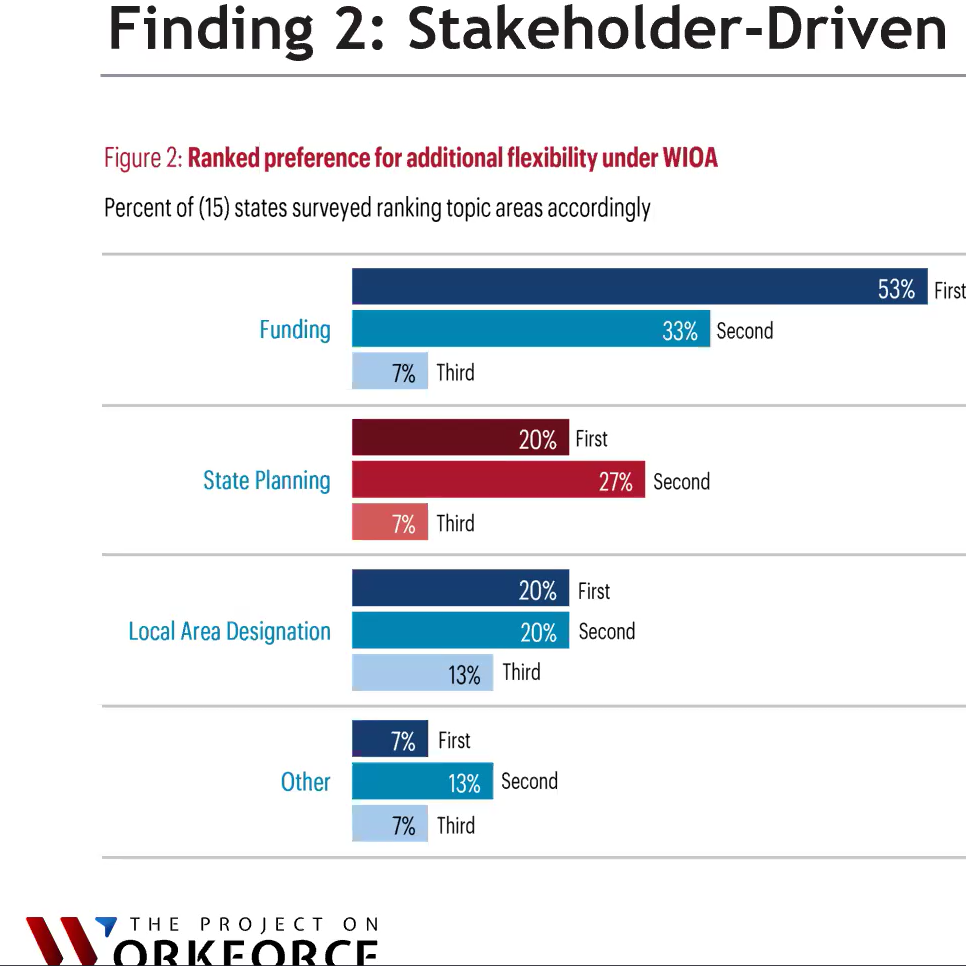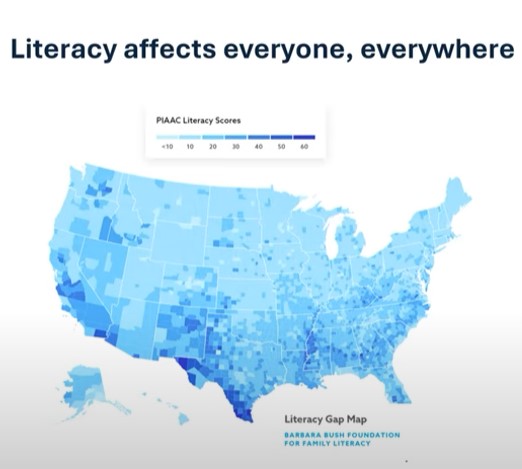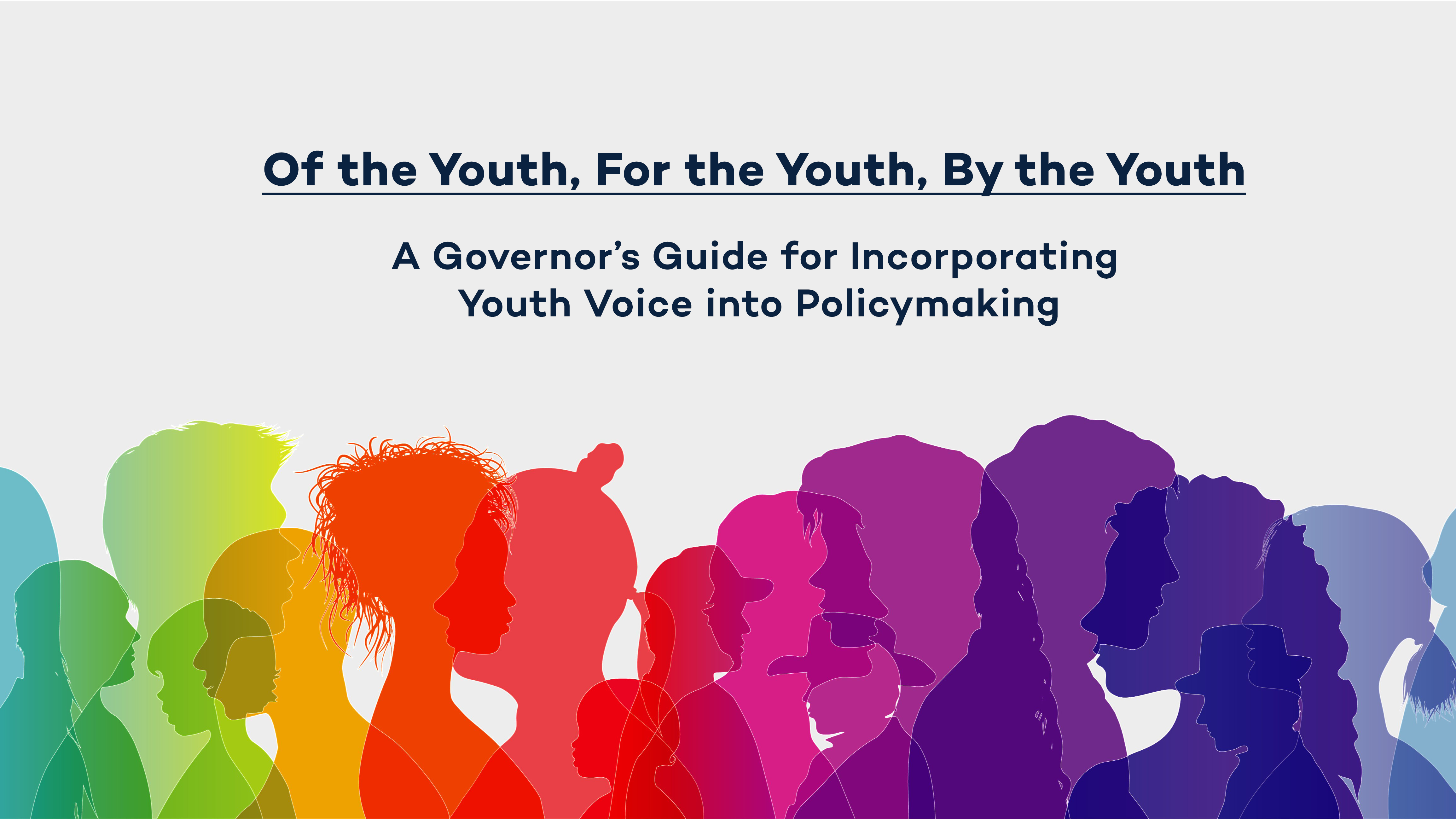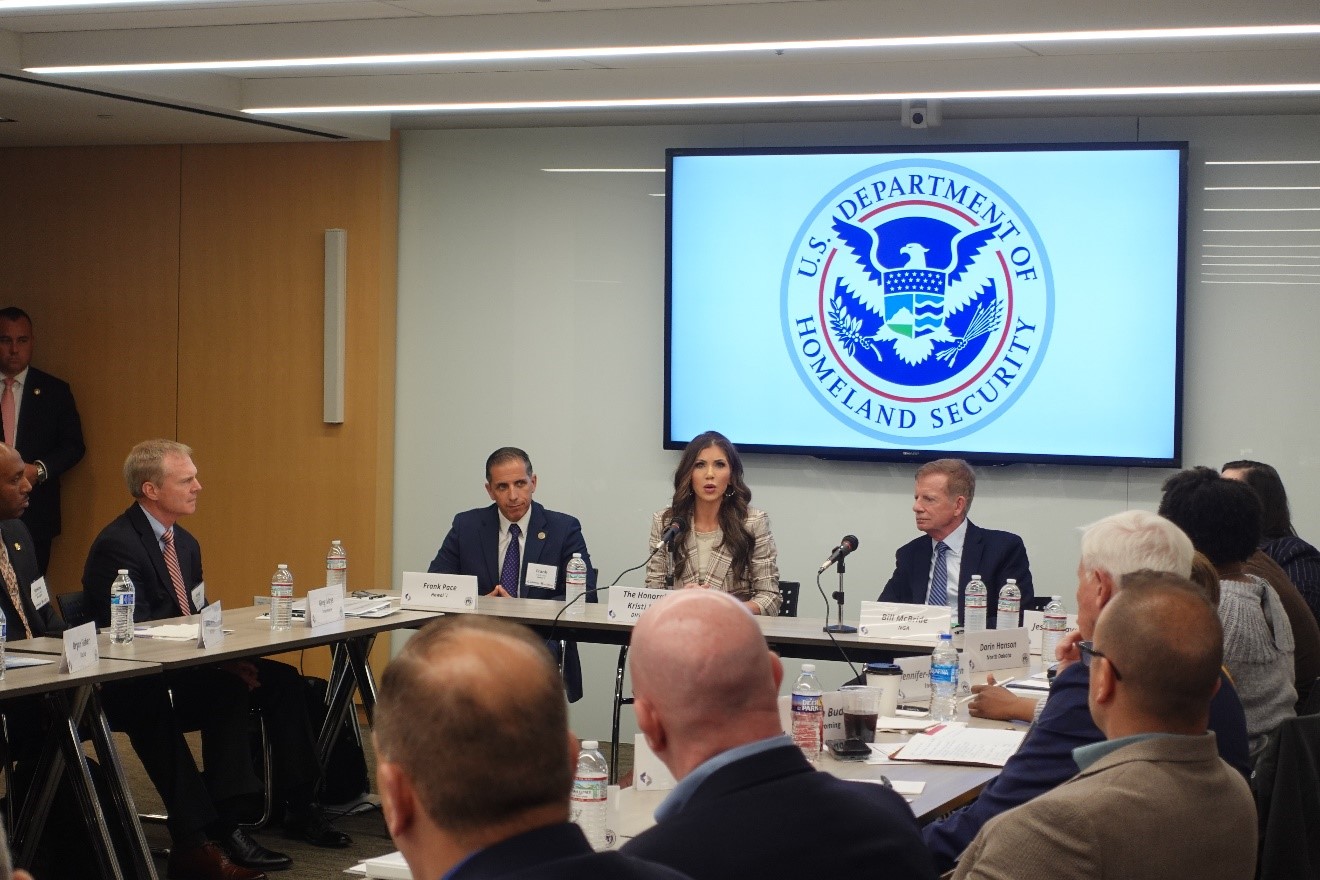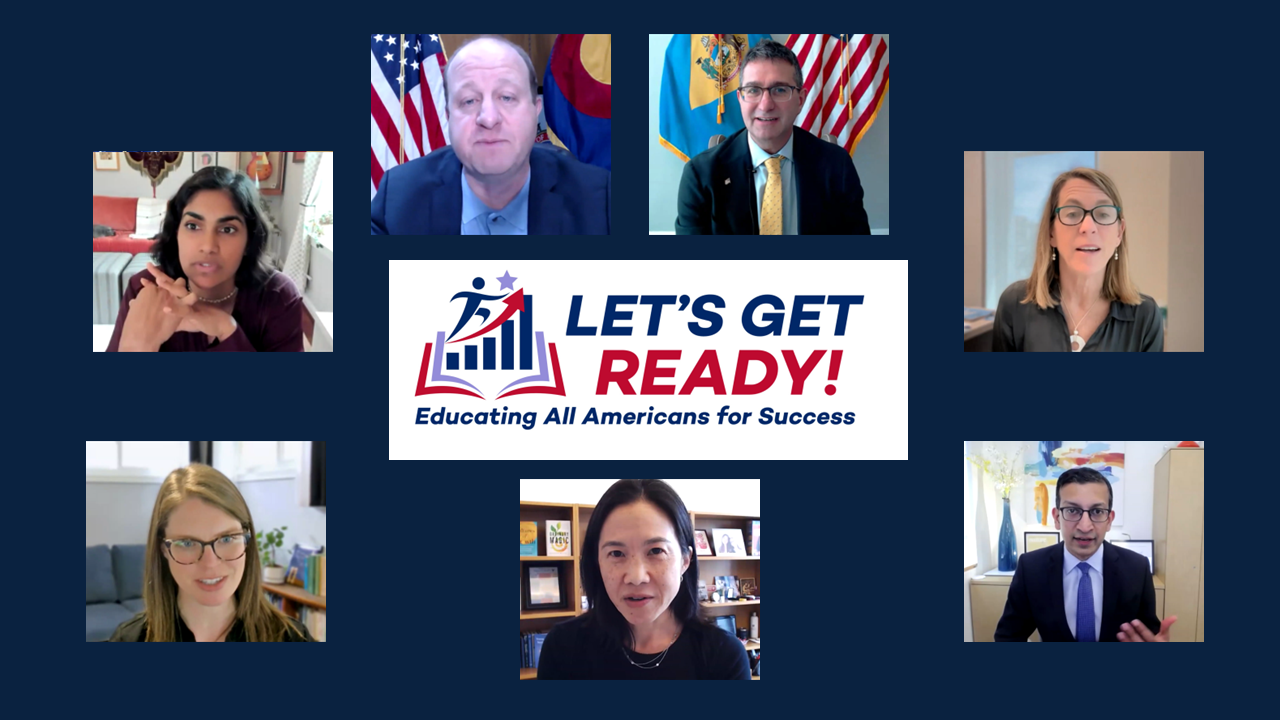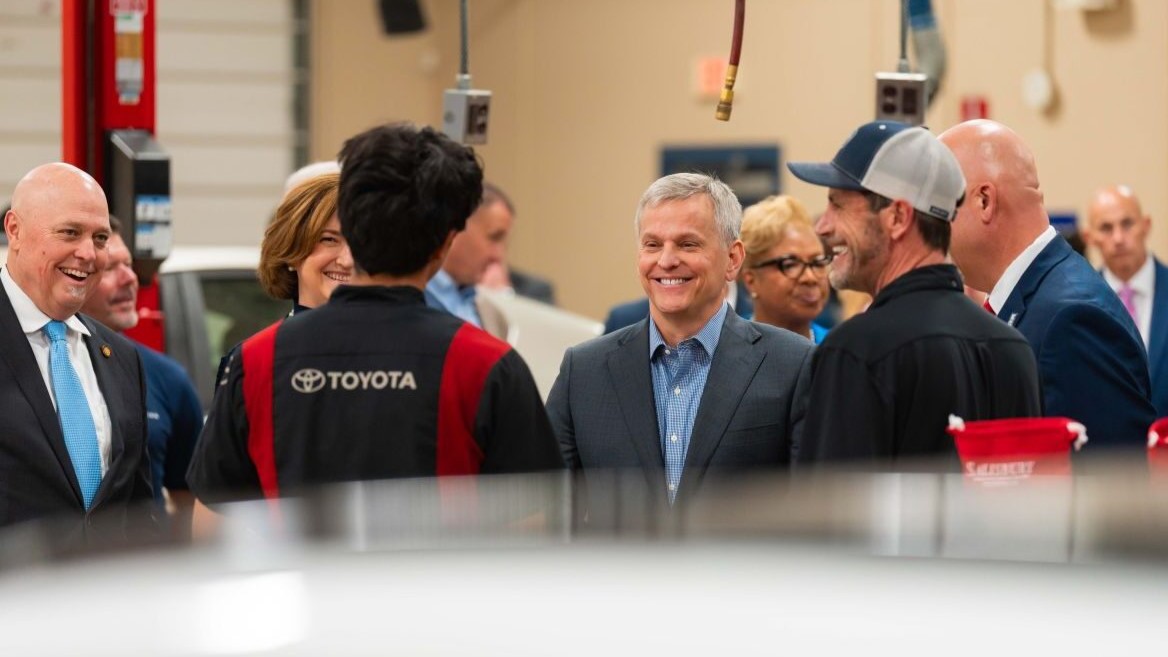How Governors are Advancing Workforce Innovation, Broadband Access and Digital Skills in America’s Workforce.
By Rachael Stephens and Katherine Ash
This week, Governors’ broadband advisors and workforce development leaders will meet in New Orleans for an in-person summit and workshop on using Broadband Equity, Access and Deployment (BEAD) Action Plans and Digital Equity Plans under the bipartisan Infrastructure Investment & Jobs Act (IIJA) to advance broadband access and digital skills in America’s workforce. Topics covered will include:
- Action planning for BEAD and Digital Equity Act (DEA) programs;
- Maximizing broadband deployment, including mapping access needs and addressing workforce shortages;
- Advancing digital literacy and digital skills in the workforce;
- Improving coordinated service delivery in support of better workforce outcomes; and
- Connecting state efforts to lead broadband expansion and digital skill development.
You can learn more about Governors’ work on broadband here, but this update focuses on NGA’s work to support Governors as they focus on building capacity for workforce system innovation and developing policy solutions that yield tangible improvements in employment and workforce outcomes.
In March of 2021, ten Governors were selected to join the inaugural cohort of the National Governors Association Center for Best Practices Workforce Innovation Network (NGA WIN) state grantees. NGA WIN was designed as a first-of-its-kind public-private collaborative in which a number of national organizations, corporate partners, practitioners and other thought leaders came together to support the nation’s Governors as they took steps to advance their most urgent workforce development priorities. Each state carried out a unique initiative aligned with its Governor’s workforce and economic recovery goals. You can find case studies of state objectives, activities and outcomes achieved in this brief. Here are a few highlights of what states achieved in just under one year of work with NGA WIN:
- Alabama launched the Skills-Based Recovery Initiative, a capstone demonstration project to offer employers technical assistance to create skills-based job descriptions using the Alabama Occupational Ontology.
- Arizona created a one-stop digital delivery system, with a specific focus on enhancing the digital literacy skills of jobseekers. This system will feature a comprehensive application and delivery of services that meets the needs and serves clients across key state agencies.
- Colorado operationalized the workforce development of the state’s economic recovery plan, CO POWER ’21, to operationalize equity in workforce response services and adopt the first statewide definition of job quality.
- Hawaiʻi researched and designed the state’s first human-centered, digital one-stop shop, the Hawaiʻi Career Acceleration Navigator (HI CAN), to provide jobseekers with easy access to essential support services, training and upskilling, in collaboration with NGA WIN partner Research Improving People’s Lives.
- Illinois gathered new data on the obstacles facing high-risk unemployed veterans and developed an action plan to pilot a more effective coordinated-service delivery model to improve job training and placement outcomes for veterans, which may serve as a model for coordinating service for other populations in the future.
- Maine implemented the state’s ten-year economic development strategy, including a “grow local talent” strategy for jobseekers. The team also prioritized a statewide rebranding effort to build awareness of the Maine workforce system and align workforce programs to support jobseekers in engaging in continuing education to achieve credentials for career advancement.
- Missouri developed an action plan to increase jobseeker engagement in its workforce development programs by 60% by 2025. The team examined journey maps to show different regional processes to inform improvements to service delivery and jobseeker outreach and engagement.
- Nevada leveraged the WIN grant to study the state’s workforce development needs and make recommendations to help more Nevadans find work or the workers they need. Governor Sisolak also announced the creation of the Workforce Development subcabinet to recommend evidence-based practices, coordinate state services to maximize efficiencies, and leverage real-time data to meet Nevada’s workforce needs.
- New Mexico launched ReadyNM, a campaign to connect jobseekers and employers and to amplify awareness of workforce and supportive services.
- Washington mapped available resources and launched a collective impact campaign to connect the most economically vulnerable jobseekers with clear, navigable routes to livable wages in high-demand, high-wage fields and achieve self-sufficiency.
With support and guidance from NGA WIN Advisors, a second cohort began work in November 2021 on initiatives to advance digital skill development for equitable economic participation in alignment with state workforce and economic development goals. To assist states in closing digital skill gaps and preparing for digital equity planning, in April, NGA and its partners at the National Digital Inclusion Alliance, National Skills Coalition, and World Education, co-published Using Data to Advance Digital Skills: A State Playbook.
Here are quick summaries of the work state teams are doing as part of this round:
- Hawaiʻi launched the Digital Skills for Workforce Hui, a wide-reaching statewide needs assessment and partnership to determine baseline digital skills, from foundational digital literacy to industry-specific skills, and develop collaborative strategies to increase access to digital skills training and resources for people across the state.
- North Carolina began planning to train and connect residents with high-paying digital careers and employment opportunities. The state developed and will pilot a Virtual Connectivity Hub and hire a Digital Navigator to facilitate ease of access to critical resources and training.
- North Dakota secured a contract with the University of North Dakota’s Institute of Policy and Business Analytics to support the data collection and development of the state’s plan to increase digital skill literacy in rural and tribal communities.
- Oklahoma partnered with metro area businesses to bring teleworking opportunities to target communities, while also providing access to the crucial digital skills training needed in today’s workforce.
- Pennsylvania established a statewide definition of digital literacy and developed a sustainable action plan to close the digital skill gap. The commonwealth is completing an asset mapping exercise of the digital skills training opportunities around the state to inform state officials on what populations and communities are currently being underserved.
- Rhode Island launched a multi-stakeholder, statewide coalition that will develop and implement a multi-year digital inclusion plan. The coalition launched focus groups, surveys and convenings, culminating in policy recommendations for the Governor.


